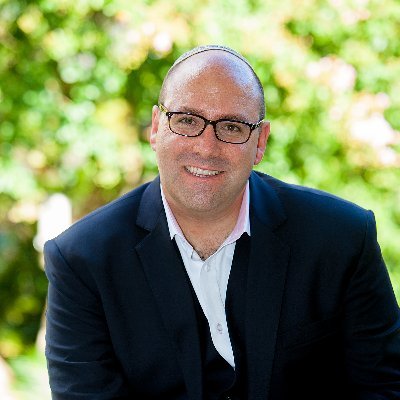For over 19 years, Liron Mazor has been an internationally recognized wealth management expert. Liron is the former host of a popular personal finance show on Chai FM radio and is the founder of Greengrass Wealth Management, Dealfo, and Soulful Money.
 Liron has been honored with multiple awards for his contributions to the investment services industry. He holds a Bcom Honours and International CFP qualification.
Liron has been honored with multiple awards for his contributions to the investment services industry. He holds a Bcom Honours and International CFP qualification.
Liron Mazor provides customized, tax-efficient wealth and retirement planning strategies for high-net-worth individuals and their families, emphasizing long-term, sustainable growth. He has spent the last year creating a course that focuses on the fundamentals of wealth creation and the practical, spiritual, and metaphysical fundamentals of financial independence. He is most passionate about his work with OrbVest Israel, introducing qualified international investors to commercial health care real estate investment opportunities in the United States.
We had the chance to sit down with Liron Mazor, who spoke to us about his real estate investing career and why he chose to partner with OrbVest.
What do you wish someone had told you when you started your investing career, and which took time to figure out on your own?
Pay off all your debts, live within your means, and save between 30% and 50% of what you earn. Be patient and know that all things come to those that wait. Create a plan, and be clear on what you are looking for. Manage your investments so that you are meeting the targets that you set in your investment plan. Do not be overly cautious, and be willing to take chances. In an upside-down world like the one we currently live in, make sure to diversify between “old world” and “new world” assets.
How is investing in the stock market different from real estate investing?
Stock exchange investing can be much more volatile as the market trades daily and is highly sentiment-driven. Investing in a stock exchange in an uncertain world can feel like riding a roller coaster in the short term, with significant gains and dips. However, this line will be much flatter in the long term, and you will not experience as much volatility. If you are looking for more predictable and stable returns, you may want to consider a commercial property with multiple tenants in a predictable asset class, such as medical buildings.
What was the greatest lesson you learned while investing?
There are several that I’d like to pass along: be diversified, be patient, look for opportunities, and always ask for advice, as there are many people much wiser and with more experience than you.
What are the benefits of real estate investing that other types of investments don’t offer?
There are seven main benefits to real estate investing:
- Ability To Leverage Funds,
- Protection Against Inflation,
- Chance To Build Capital,
- Steady Cash Flow,
- Great Returns,
- Long-Term Security,
- Tax benefits and passive income.
What are the three most important characteristics you need to succeed as a real estate investor?
First, find a property that can create an income for you from day one. Second, keep searching for the right deal. Third, find people that can constantly bring you deal flow.
Why did you choose to partner with OrbVest?
In 2014, I was starting to look for an investment that could protect my client’s income and capital during the next market downturn, and I was introduced to OrbVest through one of my clients. I connected with the management team and began to learn about the fundamentals of medical buildings. Slowly, I started to invest both mine and my client’s funds into some of the buildings on offer at the time. I enjoyed the predictable income I received from the buildings and continued supporting them over the years. Eventually, the opportunity arose for me to move to Israel and market the OrbVest buildings to this market.
What advice do you have for someone trying to decide if they should invest in real estate?
Start by looking at your current asset allocation. A good, diversified portfolio consists of 1/3 Cash, 1/3 in business (your own business or other businesses via the stock exchange), and 1/3 in property (this should exclude your primary residence). If you have money available to allocate to the 1/3 in property, I suggest you continue to the next set of questions.
How much can you invest, and how much do you want to invest in property? Are you looking for private property or commercial property? If you are looking for commercial property, which asset classes are you looking for? Once you are clear on these fundamentals, are you looking to own the building directly, or are you looking to partner with a property company? There are pros and cons to investing alone versus investing with a real estate company.


